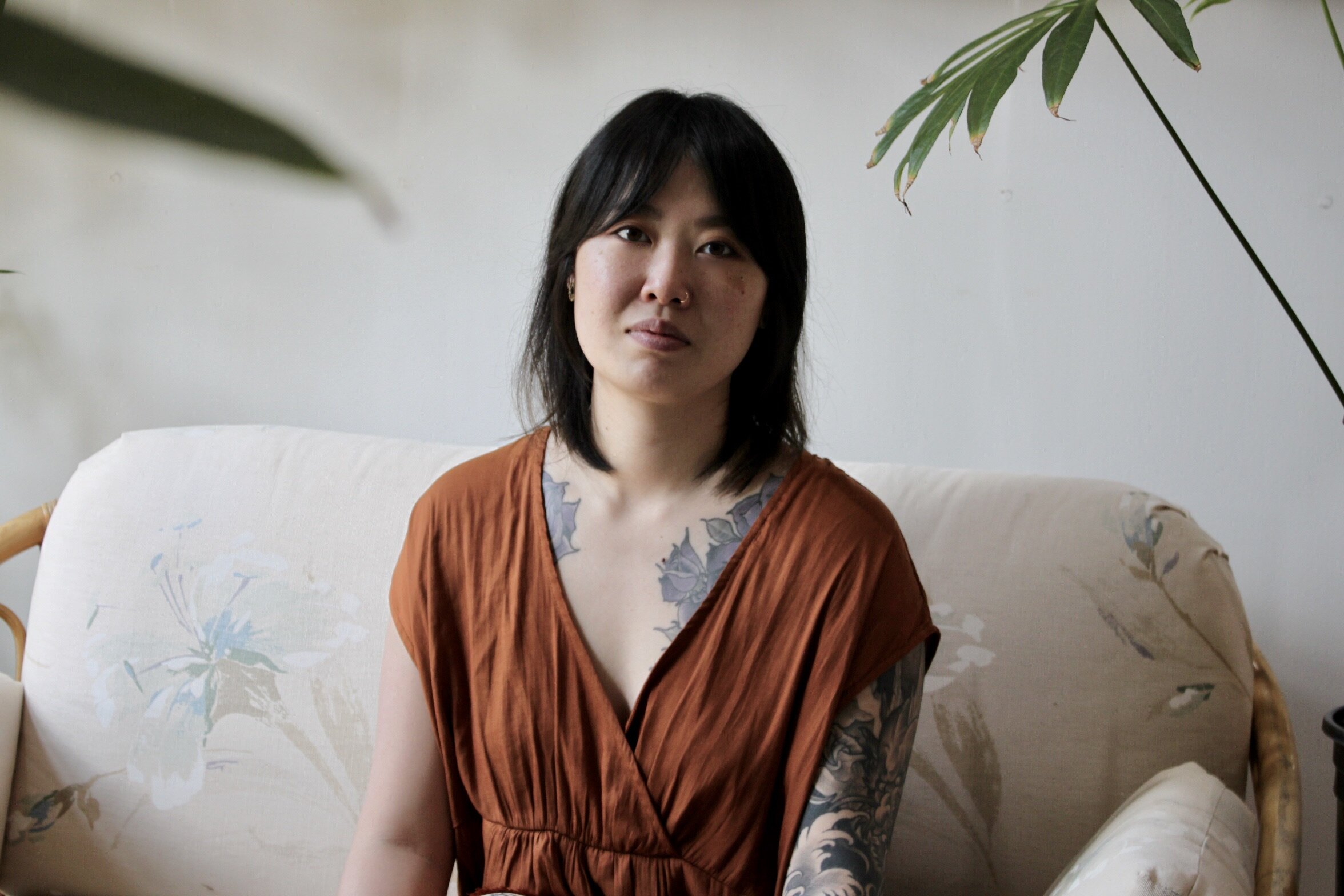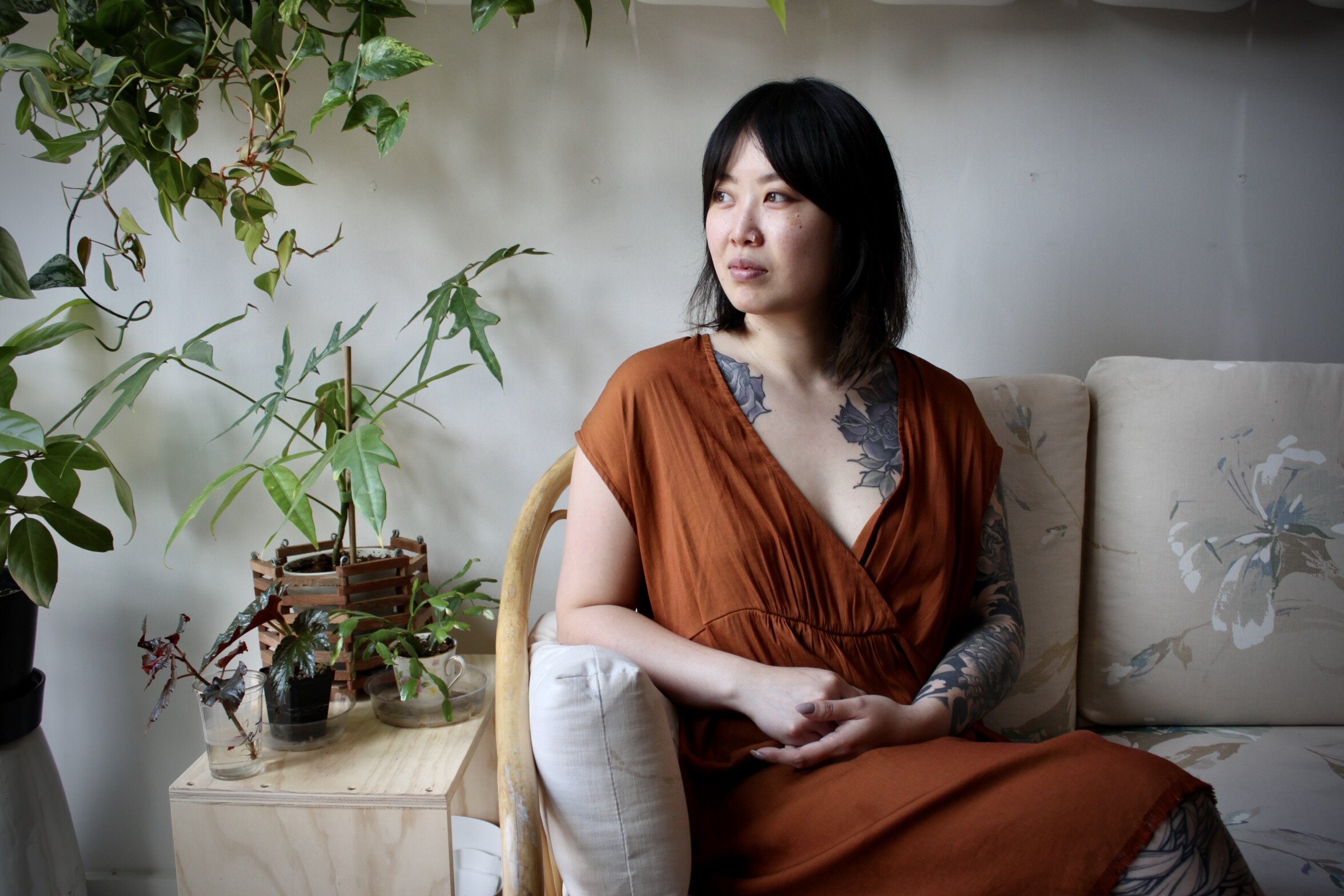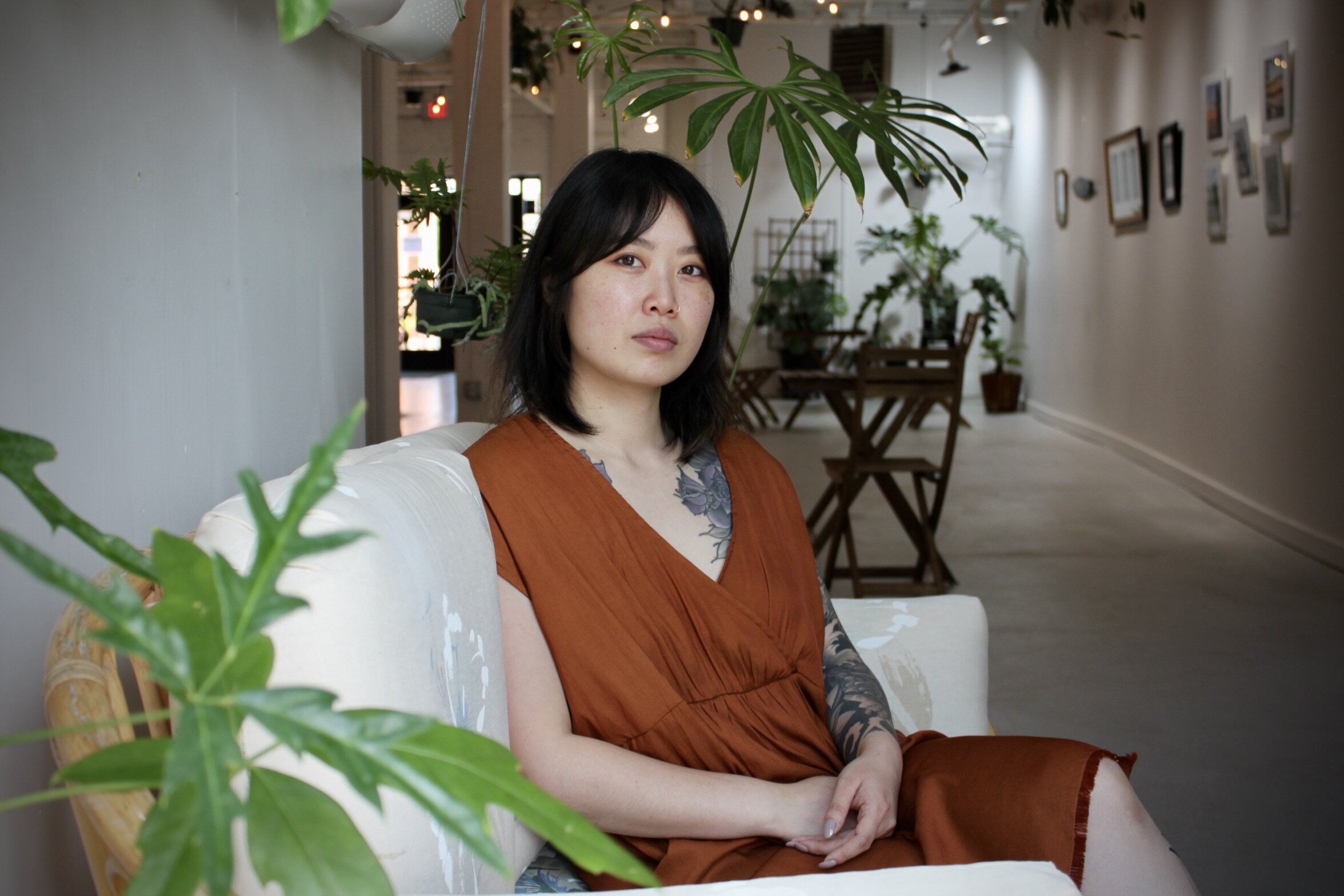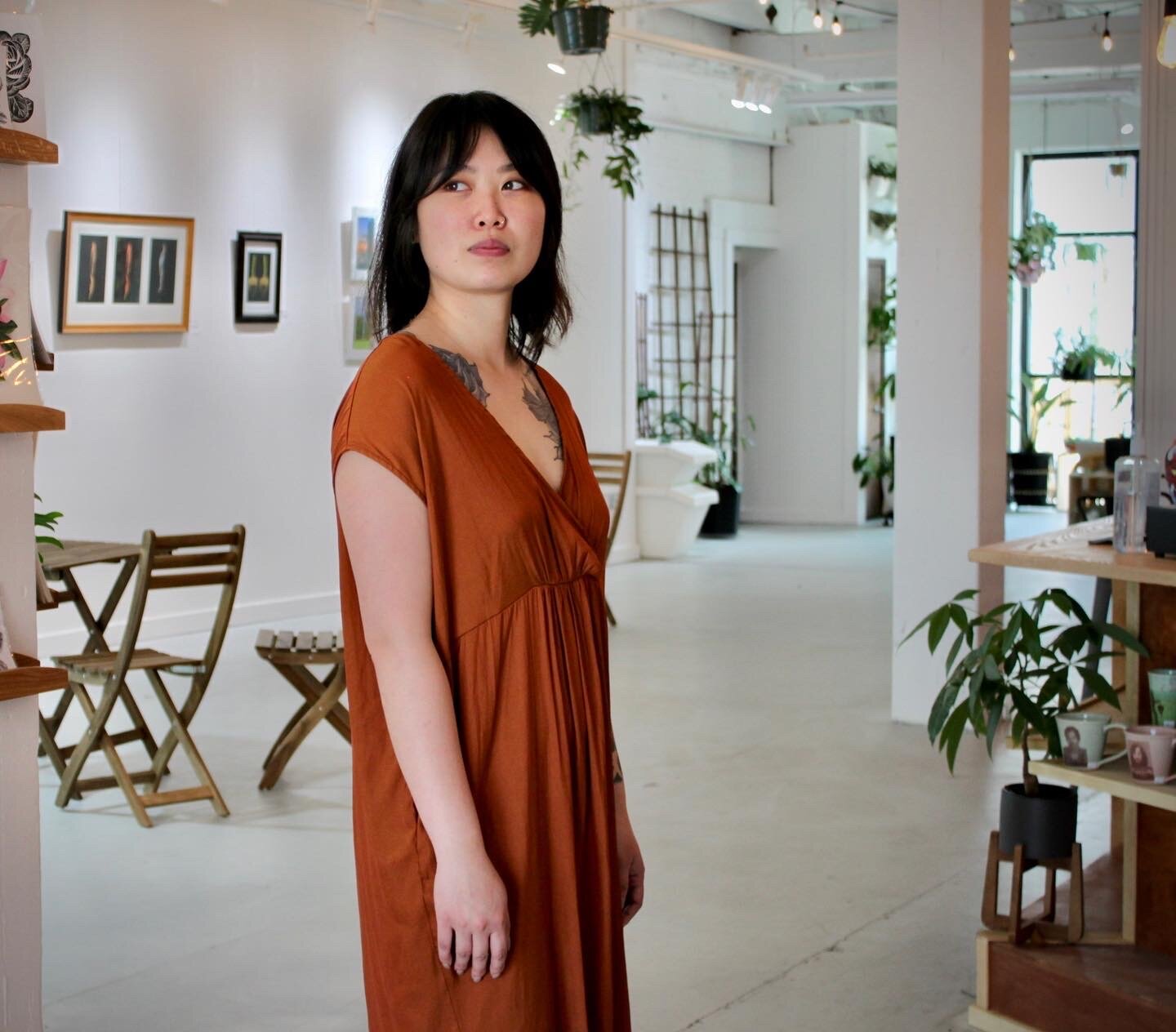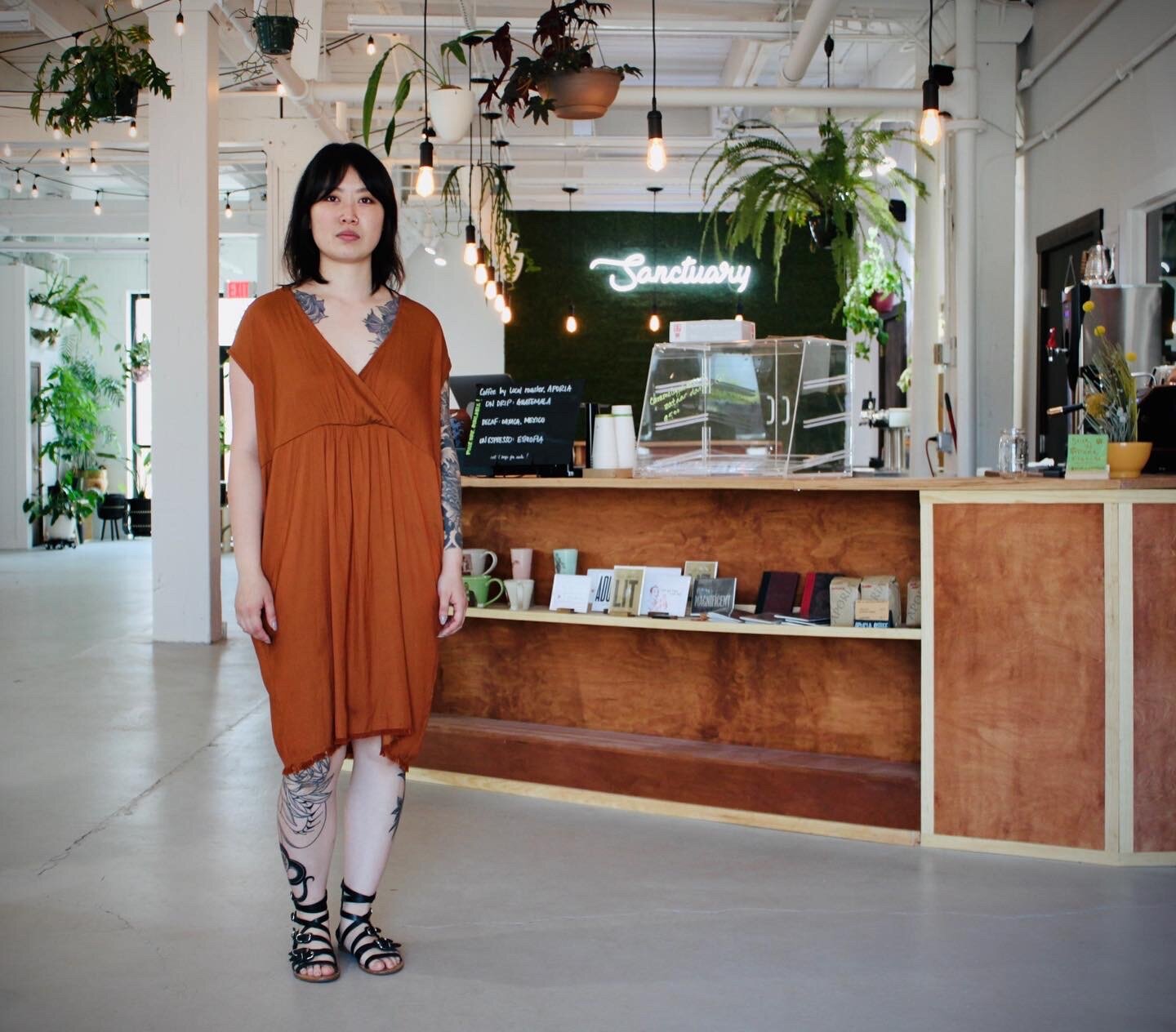Catt Hsu
“With the growth of my business, I’m learning to take up space, stand my ground, and set boundaries. I am making an effort to take time for myself. There will always be things to do, and there will always be tomorrow.”
NAMI: Have you ever had any mental health struggles?
CS: I have never had a mental health diagnosis. My mental health and wellbeing have taken a backseat in the last year or so as I poured everything I had into my business. I recognize that it is a big part of me that I need to take care of.
I struggle with anxiety. I struggle with imposter syndrome. I have always been a perfectionist, striving to be the best; to please and impress my parents, my teachers, my peers. I first became aware of my anxiety after I moved to the US when I was 10 (from Taiwan). I would have so much anxiety about the first day of school that I would be physically sick in bed with debilitating stomach pains. Soon after settling in the States, I would experience migraines four to five days out of the week, every week. Most of them were stress-induced; the stress to do well, to not worry my parents. This went on for the entirety of high school. At one point, I did try to get a handle on my migraines only to be treated by a doctor who was ... unprofessional. My parents worked overseas often, leaving me to take care of myself and my younger brother, so I made the best of what I had.
One of the more persistent mental health struggles I deal with is grief. I lost my mom to lung cancer as I was just about to begin my adult life. As I grew up and into my own person, she became my best friend and was everything to me. This loss broke me. The thought of my future wedding day alone, without her, would bring me to tears. I continue to grieve eight years later, but it has gotten easier. With time, and with personal growth, I allow myself to have bad days, but it is not nearly as crippling as it once was. Little things still set me off, but I learn to roll with it.
NAMI: How have you healed, recovered, and grown from your experiences?
CS: The biggest life changer in my mental wellbeing was meeting my partner, Rob. He is very observant and empathetic. We share a lot of similarities in our upbringings making it easier for him to understand me. Because I grew up without a ton of parental guidance, it is helpful to have a partner who can communicate effectively, who takes the time to explain and talk things out. He’s also given so much positive reinforcement through the years we have been together. He was instrumental in building up my self confidence and self worth. With the growth of my business, I’m learning to take up space, stand my ground, and set boundaries. I am making an effort to take time for myself. There will always be things to do, and there will always be tomorrow. Sometimes, it’s more beneficial to walk away and stare at a wall for a while instead of pushing forward when you’re already running on steam.
NAMI: What forms of mental health-related stigma have you observed or run into personally?
CS: In my culture, we don’t really address mental health. We ignore it, bury it deep down and we push ahead. It’s not something I paused to explore until I met Rob. It’s freeing and reassuring to be loved as you are with all your flaws. A safe and positive environment is conducive to growth.
NAMI: How do you practice self-care and stay balanced?
CS: When I’m not working, you can find me with my plants. Keeping and growing houseplants has brought me so much joy. It’s rewarding to watch something grow, and be able to share that with other people who also enjoy the hobby. Plants have been my point of connection with many people locally, all over the country, and all over the world. I am (also) learning to set boundaries with myself, particularly with my time and what I pour my energy into.
NAMI: How does Happy Gut Sanctuary promote health?
CS: I have always felt the mind/gut connection. When I am stressed, my first physical notifier has always been stomach pains. After a stressful event, more likely than not, I will have a migraine. Happy Gut Sanctuary was founded on “taking back one’s health,” specifically, Rob’s gut health, after he was diagnosed with IBS. I watched him suffer with IBS and then with the medication he was told to take. I began experimenting with more natural and holistic ways to alleviate IBS.
Not only do we take a lot of care in making our tea ferments, we also intentionally created our space as a sanctuary. As I said before, a safe and loving environment is conducive to growth. I love that we hold a safe and inclusive space.
NAMI: You've spoken openly on Instagram about the emotional effects of the hideous hate crimes that have targeted Asian Americans in recent months…
CS: The timing of the pandemic with the rise in Asian hate crimes really wore me down. Not only have I been working tirelessly to keep my business running already and have had my guard up about protecting my health, the health of my partner, and that of our customers, I have been living in fear whenever I have to go somewhere. Every time I see another report of a hate crime, particularly against an elderly person, I can’t help but imagine it being someone from my family. My mind goes in circles thinking about the community and what little is done on a larger scale, but also what I can do as a member of my community here. I am exhausted, but this has sparked more thought to what my identity is as a Taiwanese American. My partner understands how heavy this all is because he has dealt with his own racism as a half Korean. He supports me the best he can. I have friends who volunteer to escort me to places I don’t feel safe going. As much as I appreciate the gesture, to me, it’s just not a solution. I am hyper vigilant when I go out in order to keep myself safe. All of this fuels me to keep a safe space for others.

